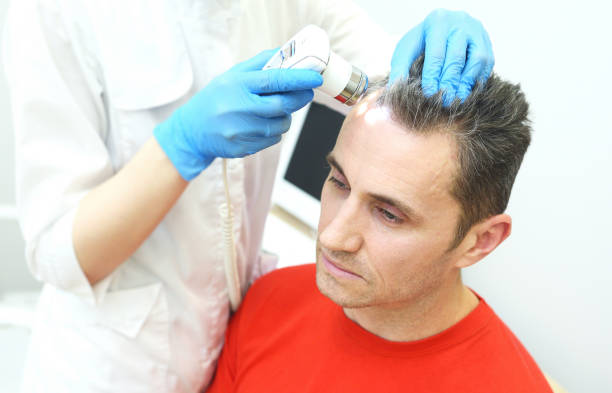Scalp Psoriasis? Best Treatments That Actually Work
Living with scalp psoriasis can be challenging, but effective treatments are available. This article explores the most successful approaches to managing this condition, from understanding its causes to the latest innovations in care. We'll dive into at-home remedies, medical treatments, and expert insights to help you find relief from scalp psoriasis symptoms.

What causes scalp psoriasis and how is it different from dandruff?
Scalp psoriasis is an autoimmune condition that causes rapid skin cell turnover, leading to thick, scaly patches on the scalp. Unlike dandruff, which results from dry skin or fungal overgrowth, scalp psoriasis is characterized by red, inflamed areas covered with silvery-white scales. The condition can extend beyond the hairline and may cause intense itching, burning sensations, and even hair loss in severe cases.
What are the most effective over-the-counter treatments for scalp psoriasis?
Over-the-counter (OTC) treatments can be a good starting point for managing mild to moderate scalp psoriasis. Salicylic acid-based shampoos help to soften and remove scales, while coal tar products can slow skin cell growth and reduce inflammation. Topical corticosteroids in the form of foams, solutions, or shampoos are also available OTC and can help alleviate symptoms. For best results, look for products specifically formulated for scalp psoriasis and follow the instructions carefully.
How can lifestyle changes and at-home care improve scalp psoriasis symptoms?
Implementing certain lifestyle changes and at-home care routines can significantly improve scalp psoriasis symptoms. Stress management techniques, such as meditation or yoga, may help reduce flare-ups. Maintaining a healthy diet rich in anti-inflammatory foods like omega-3 fatty acids can also be beneficial. Regular gentle scalp massages with natural oils like coconut or jojoba can help moisturize the skin and loosen scales. Additionally, using a humidifier in your home can prevent dry air from exacerbating symptoms.
What prescription medications are most effective for treating scalp psoriasis?
For more severe cases of scalp psoriasis, prescription medications may be necessary. Topical corticosteroids are often the first line of treatment, with stronger formulations available by prescription. Vitamin D analogues, such as calcipotriene, can help slow skin cell growth and reduce inflammation. Topical retinoids, like tazarotene, may also be prescribed to normalize skin cell development. In some cases, oral medications or biologics may be recommended for widespread or treatment-resistant psoriasis.
What are the latest innovations in scalp psoriasis treatment?
Recent advancements in scalp psoriasis treatment have focused on targeted therapies and new delivery methods. Biologics, which work by blocking specific components of the immune system, have shown promising results in treating severe cases. Light therapy, including excimer laser treatments, can now be more precisely directed at affected areas of the scalp. Additionally, new formulations of topical medications, such as foam-based products, have been developed to improve application and absorption on the scalp.
How do different scalp psoriasis treatments compare in terms of effectiveness and cost?
When considering scalp psoriasis treatments, it’s important to weigh both effectiveness and cost. Here’s a comparison of some common treatment options:
| Treatment | Type | Effectiveness | Average Cost (USD) |
|---|---|---|---|
| Coal Tar Shampoo | OTC | Moderate | $10-$20 per bottle |
| Salicylic Acid Products | OTC | Moderate | $15-$30 per bottle |
| Topical Corticosteroids | Prescription | High | $30-$100 per tube |
| Vitamin D Analogues | Prescription | High | $100-$300 per tube |
| Biologics | Prescription | Very High | $10,000-$30,000 per year |
| Excimer Laser | In-office | High | $100-$300 per session |
Prices, rates, or cost estimates mentioned in this article are based on the latest available information but may change over time. Independent research is advised before making financial decisions.
While OTC options are the most affordable, they may not be sufficient for severe cases. Prescription topicals offer a good balance of effectiveness and cost for many patients. Biologics, while highly effective, are significantly more expensive and typically reserved for severe or treatment-resistant cases. Insurance coverage can greatly impact out-of-pocket costs for prescription treatments.
In conclusion, managing scalp psoriasis often requires a combination of treatments and lifestyle adjustments. From OTC products to the latest prescription medications, there are numerous options available to help control symptoms and improve quality of life. Working closely with a dermatologist can help you find the most effective treatment plan for your individual case of scalp psoriasis.
This article is for informational purposes only and should not be considered medical advice. Please consult a qualified healthcare professional for personalized guidance and treatment.




